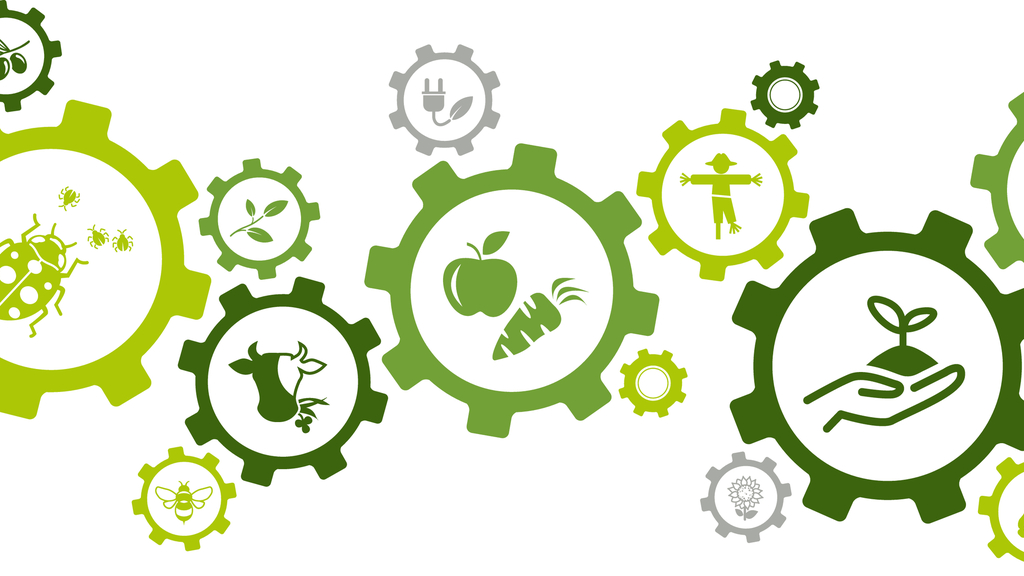Joanna Lewis is Chair of the Food Ethics Council and Policy Director at The Soil Association. The Soil Association is a membership charity working to restore nature, health and a safe climate, from the ground up.
The recent BBC documentary Meat: A threat to our planet? will have been an uncomfortable wake-up call to many about the environmental impact of our diets. But more than anything it showed the stark differences between livestock production systems. At the shocking end of the spectrum are the intensive US cattle feed-yards and pig mega-farms dependent on Brazilian soya, which should make us wary of impending trade deals. At the positive end are the free-range and pasture-fed systems that characterise the best of British farming and can store carbon in our soils.
What we eat is now in the frame on climate change as never before – with the message often reduced to #NoBeef - but how we farm often gets left out of the picture. By losing sight of how we farm we risk losing sight of the nature emergency and all hope of reversing it.
The UK’s Climate Change Committee has shown brilliant leadership in laying the foundations for the UK to become the first country in the world to legislate for Net Zero. More problematic is the nature-blindness of their ‘net zero pathway’ for farming and land use. They recommend an increase in grain-fed white meat (to compensate for a reduction in red meat) but acknowledge they haven’t yet factored in the huge deforestation and land conversion impact of imported soy to feed intensive pork and poultry. And they’re relying on further intensification of UK farming to ‘free up’ land for bioenergy.
In the same week that the Climate Change Committee launched their Net Zero report, the UN published its devastating IPBES global assessment of biodiversity and land degradation. Study after study is finding evidence of global insect decline and concluding intensive farming and pesticides are to blame. And the UN concluded there is no possibility of halting climate change without halting soil degradation. Soil holds three times as much carbon as the atmosphere but soils globally and in the UK are leaking carbon instead due to intensive farming.
Launching the UN IPBES assessment, Sir Bob Watson, former IPCC Chair, said:
“Governments have focused on climate change far more than they have focused on loss of biodiversity or land degradation. All three are equally important to human wellbeing."
So how could we do things differently if we joined the dots? In France, the policy research institute IDDRI set itself the goal of modelling how to optimise farming outcomes for climate, nature and health, backed by a team of scientists and agronomists. Their Ten Years for Agroecology in Europe model assumes a wholesale transition to agroecology: farming in ways that learn from, work with and enhance natural systems. The model tests the feasibility of phasing out artificial Nitrogen fertiliser and pesticides and finds you can still feed a growing EU population a healthy diet and maintain export capacity. It also achieves a climate impact reduction in line with the Climate Change Committee and greater than Eat-Lancet.
The IDDRI model is important because it helpfully busts the myth that it is not possible to farm with nature, radically reduce climate impact and feed a growing population healthily. It assumes we will eat less meat like all the other studies but the big difference from the Climate Change Committee’s plan is that the priority for that reduction is intensive grain-fed meat, whether from US cattle feedlot systems or intensive pork and poultry farms closer to home. And this chimes with the conclusions of the IPCC land use report – contrary to the rather lazy headlines about red meat.
That’s because 58% of cereals and 68% of oilseed crops in Europe are fed to livestock. As the BBC documentary highlighted, an area of Brazil the size of London is growing soya to feed UK intensive livestock. If we divert less land to growing animal feed and biofuels – and focus more on fruit, veg, nuts, pulses and grass-fed meat - it becomes possible to farm less intensively to restore nature, restore soils and radically reduce climate impact. Of course, as the outgoing Chief Medical Officer Sally Davies has done so much to highlight, it is intensive livestock production that is also a major driver of the antibiotic resistance crisis.
Would the planet be better off if we all went vegan? Vegans make a valuable contribution to reducing our sky-high meat consumption as a society. But a fully vegan future would not work for nature or the climate. That is because, without cows and sheep helping to recycle nutrients on mixed farms and store carbon in permanent grasslands, farming becomes reliant on artificial fertiliser which in turn drives reliance on pesticides and degrades the soil.
The RSA Commission on the Future of Food, Farming and the Countryside has recommended a Ten-Year Transition to Agro-ecology in the UK. In calling for a matching transition to healthy and sustainable diets, they take care to emphasise the how as well as the what: ‘more and better’ plants, ‘less and better meat’. The Soil Association is now working with IDDRI and the RSA to engage with stakeholders and to model what this transition would look like for land use and farm businesses across England, Scotland, Wales and Northern Ireland.
The promised National Food Strategy, led by Henry Dimbleby, looks set to survive beyond any General Election outcome, having featured in all the main party manifestos. It is to be hoped that the Strategy joins the dots between climate, nature, health and land degradation when it sets out its vision for the future of UK food and farming early in 2020.
In the meantime, I hope we can all make an adjustment in our minds from #NoBeef to #NoFeedlotBeef and – where we can - use our smaller meat ration to support nature-friendly, high welfare farming systems like organic.
Respond




